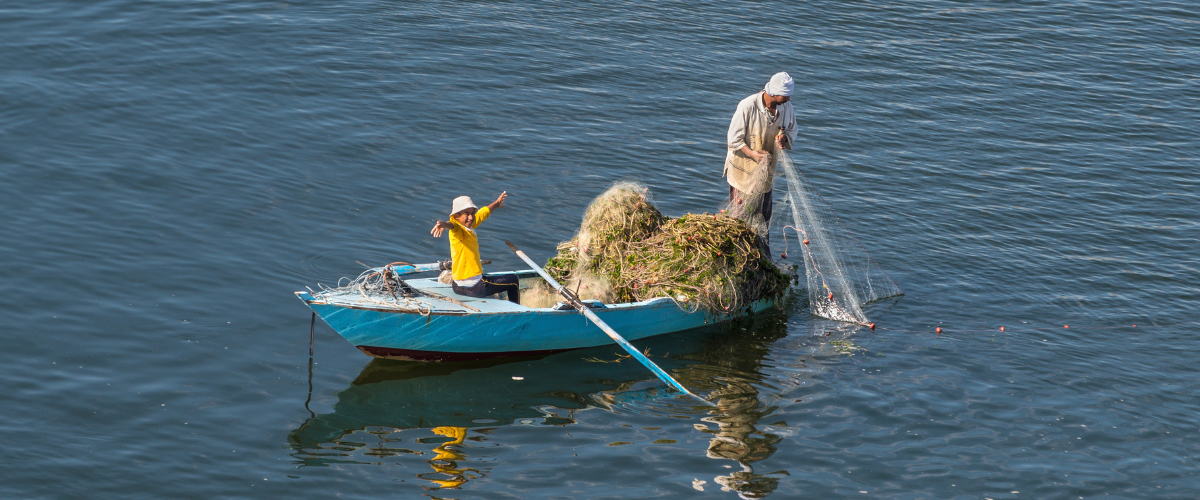This excerpt is from an opinion piece in The National by Michelle Tigchelaar and Essam Yassin Mohammed. Michelle Tigchelaar is a research scientist at Stanford Center for Ocean Solutions and member of the Blue Food Assessment. Essam Yassin Mohammed is interim director general at WorldFish and CGIAR’s acting senior director of Aquatic Food Systems. Read the full piece here.
The transition to a green economy may be fundamental to the survival of people and planet, but it is the realization of blue prosperity – from oceans, rivers and lakes – that will determine the future well-being of billions of the world’s most vulnerable people.
Fish and other aquatic foods provide an essential source of protein and other nutrients for some three billion people worldwide. But if greenhouse gas emissions remain high, fisheries and aquaculture in every country will face high or very high climate hazards by 2100.
The picture is even more dire for at least 50 countries, including the host of this year’s UN Cop27 climate talks, Egypt, which are heavily dependent on aquatic – or blue – foods. These countries face a degree of high or very high climate risk even if emissions fall by the end of the century.
The almost-certain threat posed by climate change to such a critical sector leaves dozens of countries facing the daunting challenge of filling gaps not only in food supplies but in good nutrition, livelihoods and equality. If the world is presently behind in achieving the UN’s Sustainable Development Goals, including ending hunger by 2030, then the decline of aquaculture and fisheries due to climate change would put them out of reach.
Climate negotiators at Cop27 must be yet more ambitious and commit to a roadmap towards unlocking a shared “blue prosperity” that allows fisheries and aquaculture, and those who depend upon them, to thrive.
As world leaders and policymakers gather at Cop27, research and scientific evidence offers valuable guidance for the key elements that would change the trajectory for the blue economy.
